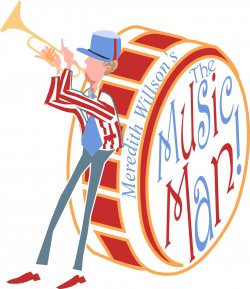- Sep 22, 2013
- 4,956
- 250
- 85
Cognitive scientists and linguists try to conceptualize and formalize music formation in the human brain in terms of perception 'memes' or reproducible segments of symbol allusions (i.e., lyric: "this tree seems to be dancing as it sways in the wind").
Music is a way to ornament language and communication, and it serves as a more expressive form of poetry.
Music lyrics contain poetic rhymes and meters.
If the relationship between language and poetry is one of rhyme and metaphor (i.e., poetic verse: "Binding the wind like braided hair"), then the relationship between language and music is one of rhyme and phonetic compatibility (i.e., lyric: "Binds the winds like a winder with a wind-up toy").
Contours between poetry and music are more complex in the case of pidgin languages such as Ebonics (the African-American street dialect). Ebonics speakers will speak economized grammatical communicative phrases such as, "Gimme fi dis" instead of "Give me five discs" to remove all sorts of phonetic sounds that impede speedy communication. Ebonics speakers will create poetry verses such as, "Fi dis for bliss" and music lyrics such as, "Fi dis my miss."
The contours between Ebonics poetry and Ebonics music are much more subtle when compared to standard English.
This is why many linguists study the relationship between street language, urban poetry, and cadence rap (or stream of consciousness music).
We can therefore create a model of Music Theory that references ideas about communications liquidation.
Such models are useful in modern age academic discussions of 'populism economics.' It is profitable to consider these models as re-presentations of 'mercantile alliteration.'

MTO 17.1 McCreless Ownership In Music and Music Theory
https://webfiles.uci.edu/ckubrin/Gangstas, Thugs, and Hustlas.pdf?uniq=fn1t69

Music is a way to ornament language and communication, and it serves as a more expressive form of poetry.
Music lyrics contain poetic rhymes and meters.
If the relationship between language and poetry is one of rhyme and metaphor (i.e., poetic verse: "Binding the wind like braided hair"), then the relationship between language and music is one of rhyme and phonetic compatibility (i.e., lyric: "Binds the winds like a winder with a wind-up toy").
Contours between poetry and music are more complex in the case of pidgin languages such as Ebonics (the African-American street dialect). Ebonics speakers will speak economized grammatical communicative phrases such as, "Gimme fi dis" instead of "Give me five discs" to remove all sorts of phonetic sounds that impede speedy communication. Ebonics speakers will create poetry verses such as, "Fi dis for bliss" and music lyrics such as, "Fi dis my miss."
The contours between Ebonics poetry and Ebonics music are much more subtle when compared to standard English.
This is why many linguists study the relationship between street language, urban poetry, and cadence rap (or stream of consciousness music).
We can therefore create a model of Music Theory that references ideas about communications liquidation.
Such models are useful in modern age academic discussions of 'populism economics.' It is profitable to consider these models as re-presentations of 'mercantile alliteration.'

MTO 17.1 McCreless Ownership In Music and Music Theory
https://webfiles.uci.edu/ckubrin/Gangstas, Thugs, and Hustlas.pdf?uniq=fn1t69

